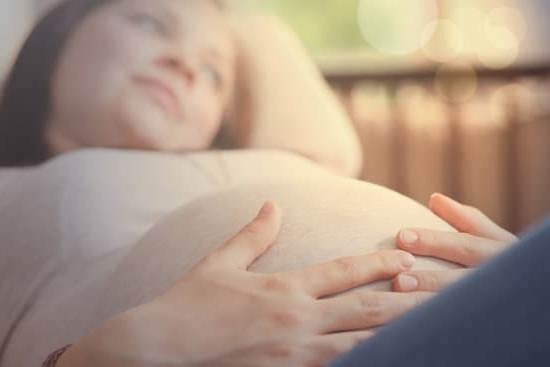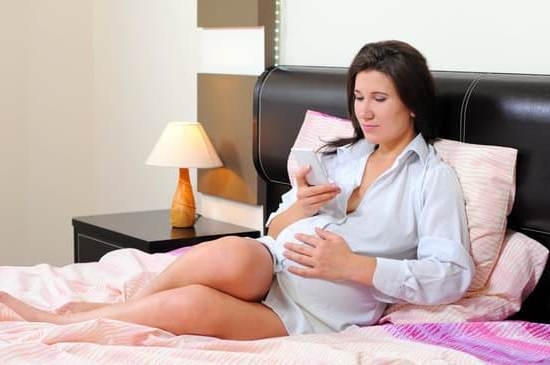Introduction Defining Early Pregnancy Stomach Cramps
Stomach cramps are a common early pregnancy symptom, and it is important for expecting mothers to understand why they can occur during this time. Generally, cramping during early pregnancy is associated with the uterus expanding as the embryo grows and the ligaments that support it stretching. This stretching can cause discomfort throughout the abdomen which may range from mild to a feeling of intense pressure. Other causes of stomach cramps during early pregnancy could include gas, constipation, hunger pains or food poisoning. Understanding what may be causing these cramps can help determine proper management to reduce the discomfort and potential health risks that come along with them.
Causes of Early Pregnancy Stomach Cramps
In early pregnancy, stomach cramps can be caused by many different things. Commonly they are caused by gas and bloating due to changes in diet and digestion that are typical in the first trimester. Hormone fluctuations such as progesterone release may cause spasms of the uterus or intestines and can lead to abdominal pain. Other causes include a rapidly growing uterus pressing on nearby organs, food intolerance or sensitivities, gastrointestinal issues such as irritable bowel syndrome (IBS), constipation, and infections. Diet and environmental factors may also play a role. For example, eating too much fatty or spicy foods can cause indigestion which can lead to abdominal cramping. Similarly, exposure to certain toxins from smoke or pollution may trigger discomfort in the stomach area.
Symptoms of Early Pregnancy Stomach Cramps
Stomach cramps can be an early pregnancy symptom of many women. Other associated symptoms can include nausea, fatigue, difficulty sleeping or concentrating, and mood swings. Pregnant women may also experience food cravings, sensitive breasts or nipples, constipation, bloating or sudden weight gain or loss. These symptoms can be particularly noticeable during the first trimester due to hormonal changes in the body associated with pregnancy. If these symptoms become severe or if you start to spot or bleed from your vagina then contact your doctor immediately as this could indicate a medical problem unrelated to pregnancy.
When to be Concerned
It is not uncommon for women to experience stomach cramps early on during pregnancy, though it can be disconcerting. The cramping usually occurs during the first trimester, which is from weeks 1-12 of the pregnancy. These sensations are often similar to menstrual cramps and may be accompanied by light spotting, which again can be quite concerning.
These cramps, although potentially uncomfortable, are likely part of the uterus expanding and a normal sign of a healthy pregnancy. However, if you experience heavy bleeding along with the cramping with strong intensity or persistent pain then it’s important to seek medical advice as these could indicate potential problems such as ectopic pregnancies or miscarriages. Serious health issues may require further investigation so it is best to schedule an urgent appointment with your doctor if you have any concerning symptoms.
Treatment for Early Pregnancy Stomach Cramps
Yes, stomach cramps are common during early pregnancy. In most cases they are caused by hormonal changes that take place when the fertilized egg attaches to the uterus and begin to develop. Women may experience cramping in the first trimester of pregnancy, roughly between weeks 4 to 12. It is usually an indication that a new life is beginning, but it can be uncomfortable.
While there is no specific treatment for early pregnancy stomach cramps, it is important for pregnant women to eat a light diet and take prenatal vitamins prescription or over-the-counter medication as recommended by their doctor or midwife. Eating smaller meals more often and limiting fatty foods can help reduce the symptoms of stomach cramps. Drinking plenty of fluids to help with digestion will also help to ease any discomfort or nausea that may be linked in with the cramping. Reducing stress levels can also help reduce symptoms too. Additionally avoiding hot tubs and saunas can also provide relief from abdominal discomfort.
Prevention of Early Pregnancy Stomach Cramps
One of the most common early signs of pregnancy may be stomach cramps. These cramps can occur at any time during the day or night and can range from mild to severe. There are a few ways to help prevent stomach cramps during early pregnancy, such as drinking plenty of fluids—including water and diluted fruit juices—and avoiding processed or sugary foods that could cause an upset stomach. Additionally, you should get plenty of rest and focus on eating nutritious meals that contain a balance of fruits, vegetables, fiber, protein and healthy fats. Exercise regularly at a moderate level—but consult with your doctor before starting any exercise regimen while pregnant. Finally, avoid activities that require large amounts of bending or twisting motions.
Conclusion
While stomach cramps early in pregnancy are not uncommon and usually not a cause for concern, it is important to listen to your body. If the stomach crampsre persistent or seem abnormal, contact your doctor right away to rule out any potential underlying issues. It can also be helpful to make sure you are eating regular, balanced meals and getting ample rest. Try also to stay away from foods that may trigger pain or discomfort. In some cases, medications may be recommended depending on the reasons for the cramps. If you experience additional symptoms such as fever or vaginal bleeding, seek medical help straight away.

Welcome to my fertility blog. This is a space where I will be sharing my experiences as I navigate through the world of fertility treatments, as well as provide information and resources about fertility and pregnancy.





